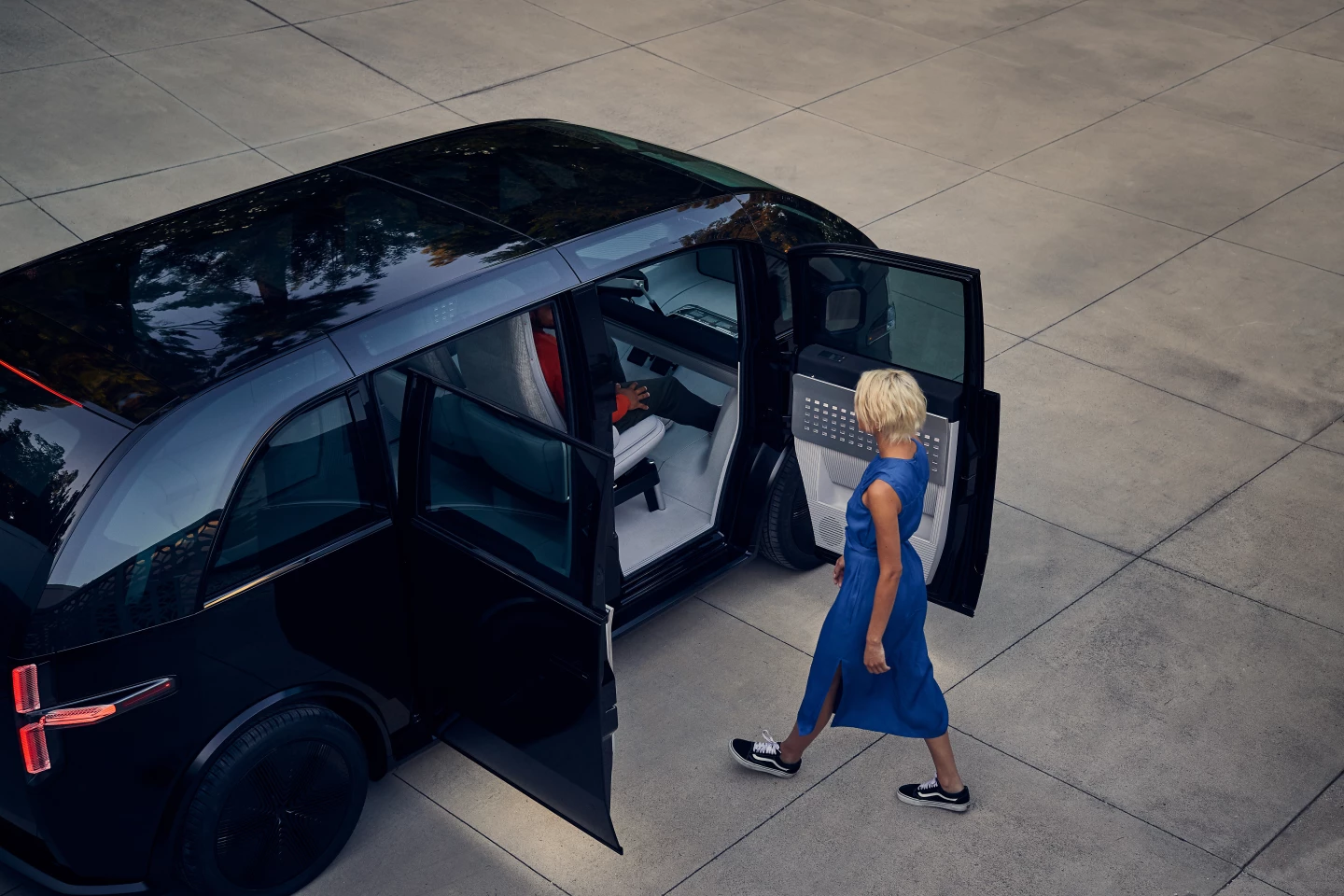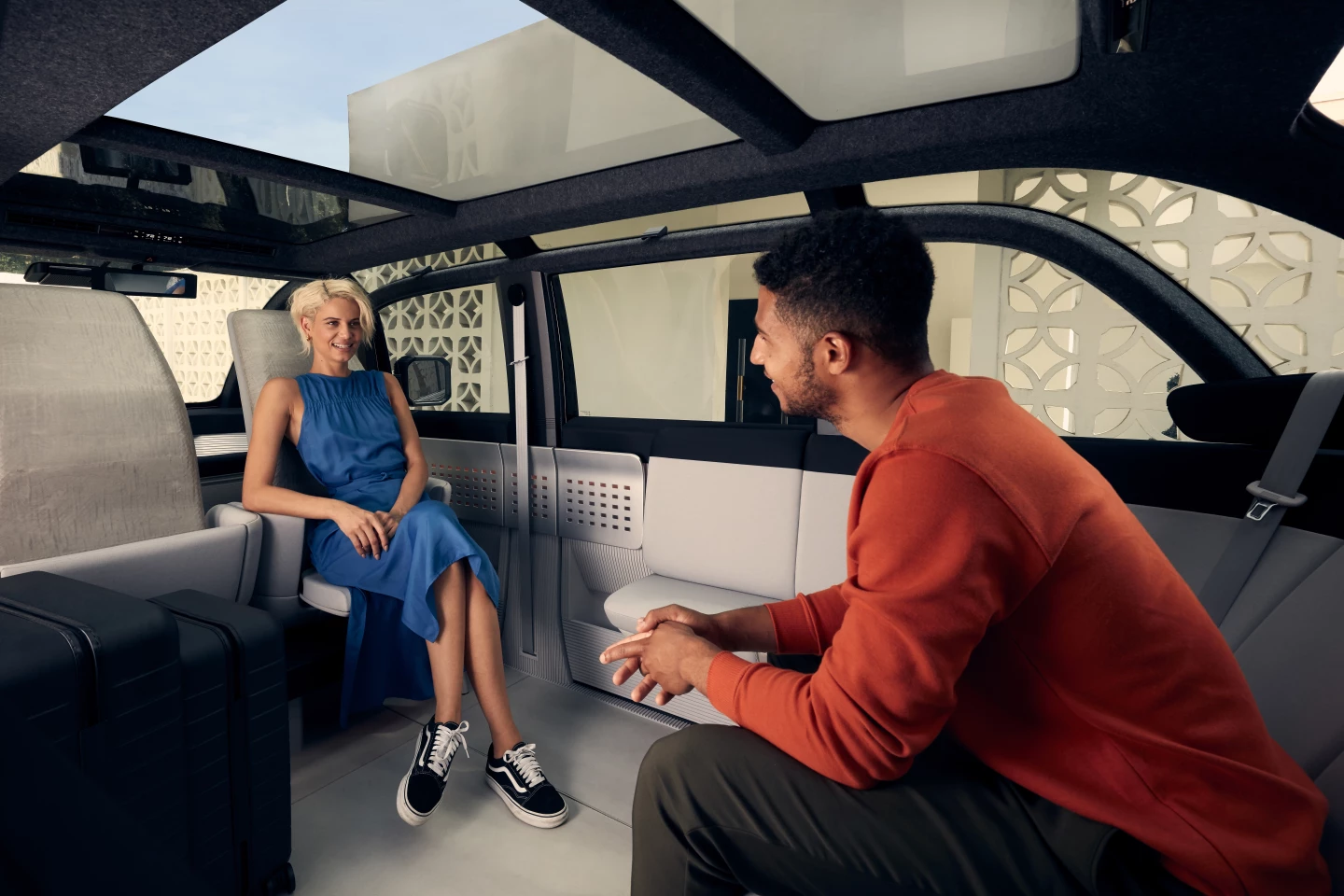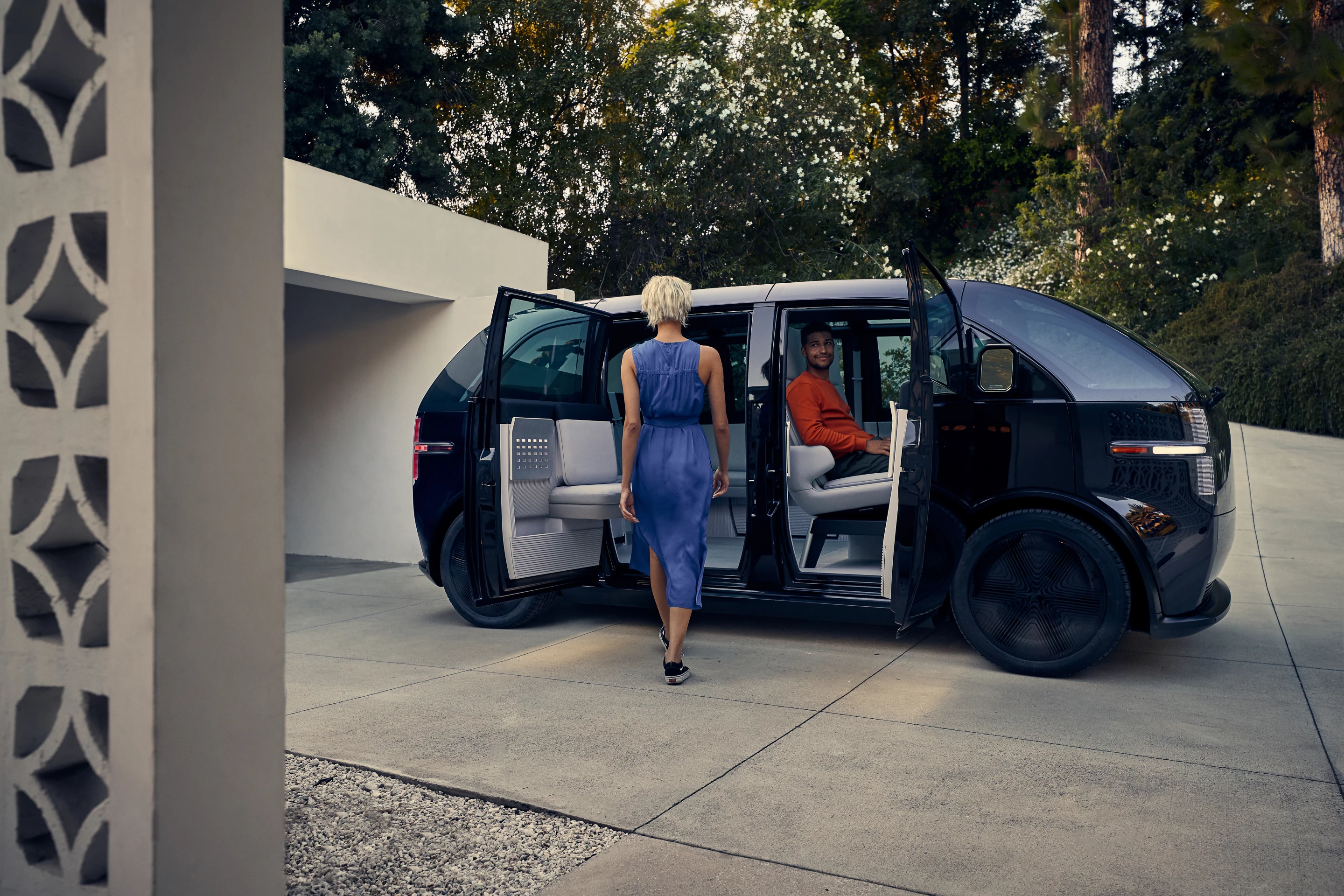Cars can be very expensive and though many folks own the vehicle they use to travel to work, take the kids to school or go shopping, others prefer to lease. Los Angeles-based Canoo has unveiled an electric people mover that you don't buy or lease, but use through a monthly subscription model.
Rather than buy a car from a dealership, register the vehicle, get insurance and then have to set money aside for running costs including maintenance and repairs, Canoo invites users to pay into a month-to-month subscription model with an app that puts everything needed to get on the road into one place.
"When you subscribe, you think differently about a car – now the value is defined by the user benefit," said the company's Richard Kim. "We implemented the Bauhaus philosophy, which is centered around minimalism and functionality, and started with the reduction to the absolute minimal need. Next, we applied that approach to the seamless connectivity with the personal devices customers care most about – their phones."

The 4,421 x 1,898 x 1,846 mm (174 x 74.7 x 72.67 in) canoo vehicle has a curb weight of 2,020 kg (4,453 lb) and is built on an EV skateboard platform that's home to the batteries and drivetrain. Its 80 kWh battery pack should be good for 250 miles (over 400 km) of EPA range per charge, and can be topped up to 80 percent in under half an hour via DC fast-charging. The rear wheel drive unit's single motor makes 300 hp and 425 Nm (323 lb.ft) of torque, and will be able to manage an electronically-limited top speed of 125 mph (200 km/h).
The body is fashioned from steel with a thermoplastic polymer outer skin, for an "interior space of a large SUV and the exterior footprint of a compact car." The rear seating has been designed to feel more like a u-shaped sofa than a bench while the driver and passenger area takes "inspiration from mid-century modern cars." In all, the canoo has been designed to transport up to seven adults.
Users control non-driving functionality – such as navigation, entertainment and heating – using their own smartphone or tablet. The vehicle offers 15.4 cubic feet of luggage space, has 161 mm (6.3 in) of ground clearance, and weight distribution comes in at a 47/53 split.

The canoo makes use of seven cameras, five radars and 12 ultrasonic sensors for driver assistance. It doesn't have any hardware connecting the steering wheel to the wheels, and steers by electronic signals only. The company says that this system allows for weight savings, offers a more responsive and smoother driving experience, and frees up more space inside the vehicle. And, together with advanced driver assistance systems, could provide a platform for full autonomy in the future.
The skateboard architecture includes a suspension system that doesn't intrude into the passenger area and rides on 20-inch wheels with low rolling resistance tires. It will form the basis of other vehicles down the line, which will simply be topped by different cabins.
Due to launch in 2021, the canoo subscription-only EV is currently starting a beta testing phase.
Source: Canoo










